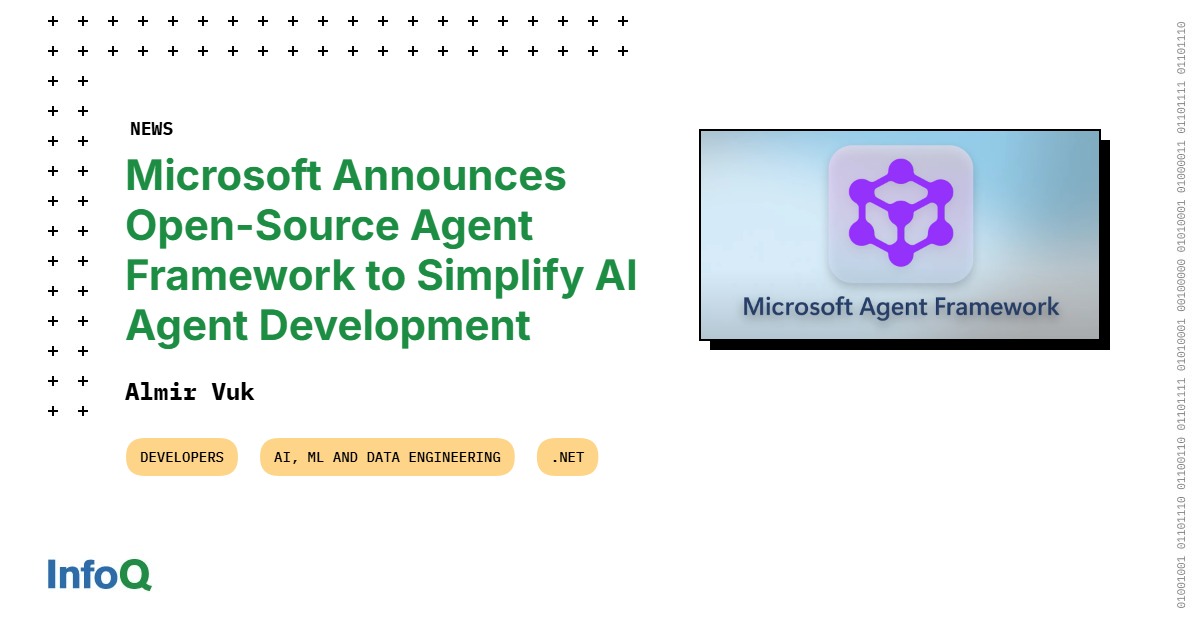
"The framework represents a significant consolidation effort, as stated by Microsoft engineers, unifying capabilities from two previously separate projects: Semantic Kernel, which provided enterprise-ready foundations, and AutoGen, developed by Microsoft Research for experimental multi-agent orchestration. According to the announcement, developers previously had to choose between innovation and production stability, a limitation the new framework aims to eliminate."
"As noted in the technical documentation, Microsoft Agent Framework enables developers to build AI agents with minimal code requirements. The company demonstrated this simplicity with examples showing functional agents created in fewer than twenty lines of code. "Building AI agents shouldn't be rocket science," as stated in the .NET blog announcement, emphasizing the framework's focus on accessibility for developers without specialized AI expertise."
"Open Standards & Interoperability - Enables Model Context Protocol (MCP) support, Agent-to-Agent (A2A) communication, and OpenAPI-based integration, ensuring portability across different runtime environments. Pipeline for Research - Advanced orchestration patterns from AutoGen, such as group chat, debate, and reflection capabilities, now delivered with enterprise-grade reliability. Extensible by Design - Modular framework featuring connectors to Azure AI Foundry, Microsoft Graph, SharePoint, Elastic, Redis, and additional services. Declarative agent configurations via YAML and JSON enable version-controlled workflow management."
Microsoft announced the preview release of Microsoft Agent Framework, an open-source SDK for creating and deploying AI agents for developers of all skill levels. The framework merges Semantic Kernel and AutoGen capabilities to remove the tradeoff between innovation and production stability. The framework supports minimal-code agent creation, with examples showing functional agents in fewer than twenty lines. Core pillars include open standards and interoperability (MCP, A2A, OpenAPI), a research-focused pipeline with AutoGen orchestration patterns (group chat, debate, reflection), and an extensible, modular design with connectors and declarative YAML/JSON configurations for version-controlled workflows.
Read at InfoQ
Unable to calculate read time
Collection
[
|
...
]